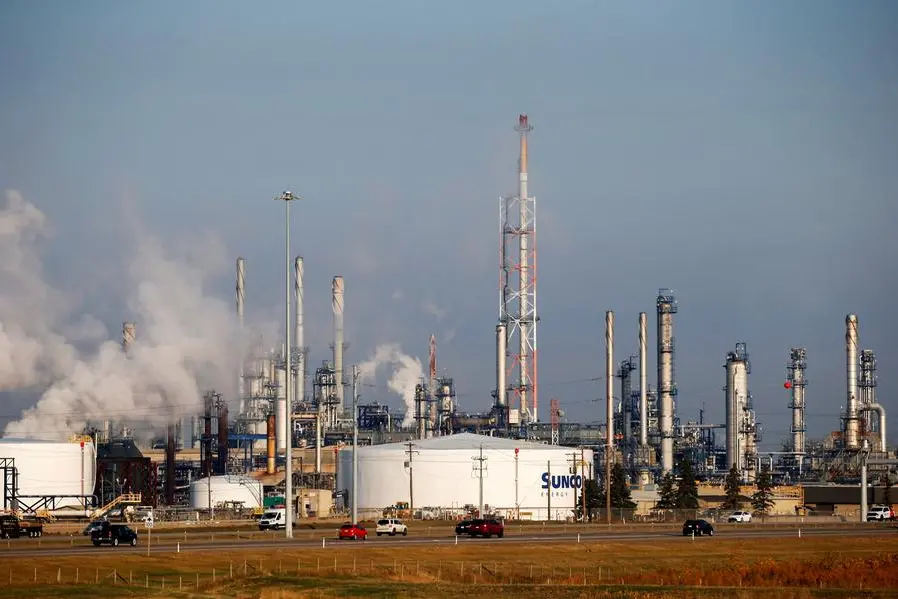PHOTO
Canada's biggest oil sands producers support a paying a tax on carbon but see a proposed federal oil and gas emissions cap as unnecessary legislation, the companies' CEOs told lawmakers in Ottawa on Thursday.
Executives from Suncor Energy, Imperial Oil , Cenovus Energy, Enbridge and Shell appeared via videolink before a House of Commons committee to answer questions on their efforts to cut emissions.
Prime Minister Justin Trudeau's Liberal government is planning to introduce a cap on oil and gas emissions but faces stiff opposition from producers, who argue the legislation is unnecessary because Canada already has regulatory incentives in place, including a price on carbon produced by industry.
"I do support a price on carbon across the economy because I believe that will drive the innovation, the economic incentives on all of our part to continue to improve our business," said Suncor CEO Rich Kruger.
"I fundamentally worry that a cap on emissions, the way it's constructed, will be a cap on production," he added.
The oil and gas sector is Canada's highest-polluting industry, accounting for more than a quarter of all emissions, and in 2022 made record profits as oil prices soared during Russia's invasion of Ukraine. Climate campaigners say companies should invest more of their profits in decarbonization.
Kruger's opposition to a cap was echoed by Imperial CEO Brad Corson and Cenovus CEO Jon McKenzie.
"Canada has some of the most stringent regulatory requirements of any place in the world, which is why when it comes to something like an emissions cap, I think it's unnecessary," said Corson. "There's plenty of other vehicles and requirements in place."
Climate advocates said oil sands companies lack comprehensive strategies to decarbonize despite repeated promises to do.
"Today's testimony is a reminder that additional regulation is urgently needed if Canada's oil and gas sector is going to meaningfully reduce its emissions," said Marie-Christine Bouchard, oil and gas program director at the Pembina Institute.
PATHWAYS ALLIANCE
Canada is the world's fourth-largest oil producer, with most of its 5 million barrels per day of production coming from the northern Alberta's oil sands.
Suncor, Imperial and Cenovus are part of the Pathways Alliance, a group of oil sands producers proposing to invest C$16 billion ($11.70 billion) in a carbon capture and storage (CCS) project. However, progress has been slow and the group is seeking more public funding from federal and provincial governments before making a final investment decision.
"Before we can put shovels in the ground, we need many government permits and approvals and we need regulatory certainty and co-investment commitments," McKenzie said.
The CEOs supported keeping a price on carbon pollution, which would help provide a revenue stream for Pathways' sequestered emissions, although McKenzie said it needed to be universally applied and could not target just one industry.
Carbon pricing has become a political issue after federal opposition leader Pierre Poilievre vowed to scrap Canada's consumer carbon tax, prompting questions over the future of the industrial carbon price.
Poilievre's Conservatives are leading the Liberals in polls ahead of an expected election next year.
The session was at times combative, with some lawmakers criticising the CEOs for the high emissions intensity of their crude. Laurel Collins of the left-leaning New Democratic Party asked Suncor's Kruger how he slept at night given the threat of climate change.
"I appreciate your desire to create headlines, to point fingers that attempt to villanize the industry," Kruger said in response.
(Reporting by Nia Williams in British Columbia Editing by Marguerita Choy and Deepa Babington)





















